Animals
-
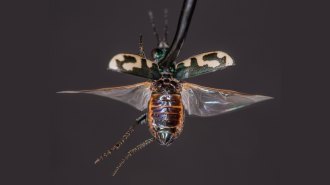 Animals
AnimalsTiger beetles may weaponize ultrasound against bats
In response to recordings of echolocating bats, tiger beetles emit noises that mimic toxic moths that bats avoid.
By Jake Buehler -
 Health & Medicine
Health & MedicineCows might host both human and bird flus
Both kinds of influenza viruses may break into cattle cells using receptors similar to those in people, wild birds and poultry.
-
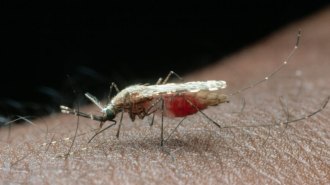 Animals
AnimalsGetting wild mosquitoes back to the lab alive takes a custom backpack
The new low-tech transportation method could help scientists in Africa assess if malaria-carrying mosquitoes are resistant to a common insecticide.
-
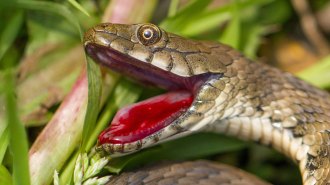 Animals
AnimalsThis snake goes to extremes to play dead — and it appears to pay off
When dice snakes fake their death to avoid predators, those that use a combination of blood, poop and musk spend less time pretending to be dead.
-
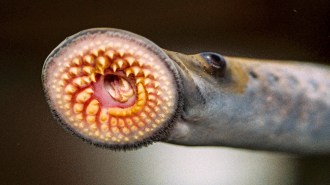 Neuroscience
NeuroscienceLampreys have ‘fight or flight’ cells, challenging ideas about nervous system evolution
The discovery of sympathetic nervous system cells in lampreys draws a closer tie between the animal and complex vertebrates — such as humans.
-
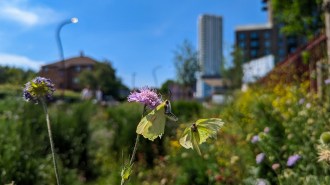 Animals
AnimalsWant to see butterflies in your backyard? Try doing less yardwork
Growing out patches of grass can lure adult butterflies and moths with nectar and offer lawn mower–free havens for toddler caterpillars.
By Susan Milius -
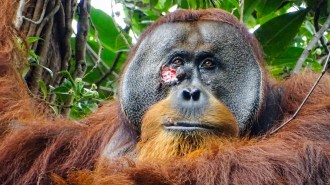 Animals
AnimalsThis orangutan used a medicinal plant on his face wound
Rakus the orangutan appeared to be treating a cut to his face with a plant that’s also used in traditional human medicine.
-
 Animals
AnimalsBelugas may communicate by warping a blob of forehead fat
Jiggling the “melon” like Jell-O seems to be associated with sexual behaviors, scientists say.
-
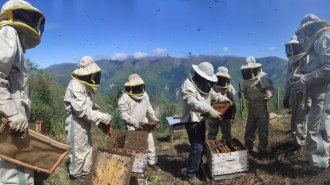 Animals
AnimalsXimena Velez-Liendo is saving Andean bears with honey
By training beekeepers, biologist Ximena Velez-Liendo is helping rural agricultural communities of southern Bolivia coexist with Andean bears.
-
 Health & Medicine
Health & MedicineTraces of bird flu are showing up in cow milk. Here’s what to know
We asked the experts: Should people be worried? Pasteurization and the H5N1 virus’s route to infection suggests risks to people remains low.
-
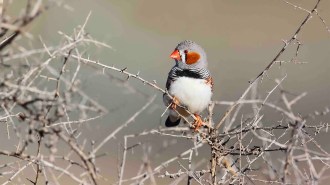 Ecosystems
EcosystemsNoise pollution can harm birds even before they hatch
Exposing zebra finch eggs and hatchlings to traffic sounds had lifelong health impacts, raising concerns about increased anthropogenic noise.
-
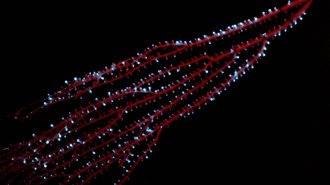 Animals
AnimalsGlowing octocorals have been around for at least 540 million years
Genetic and fossil analyses shine a light on how long the invertebrates have had bioluminescence — a trait thought to be volatile.
By Jake Buehler